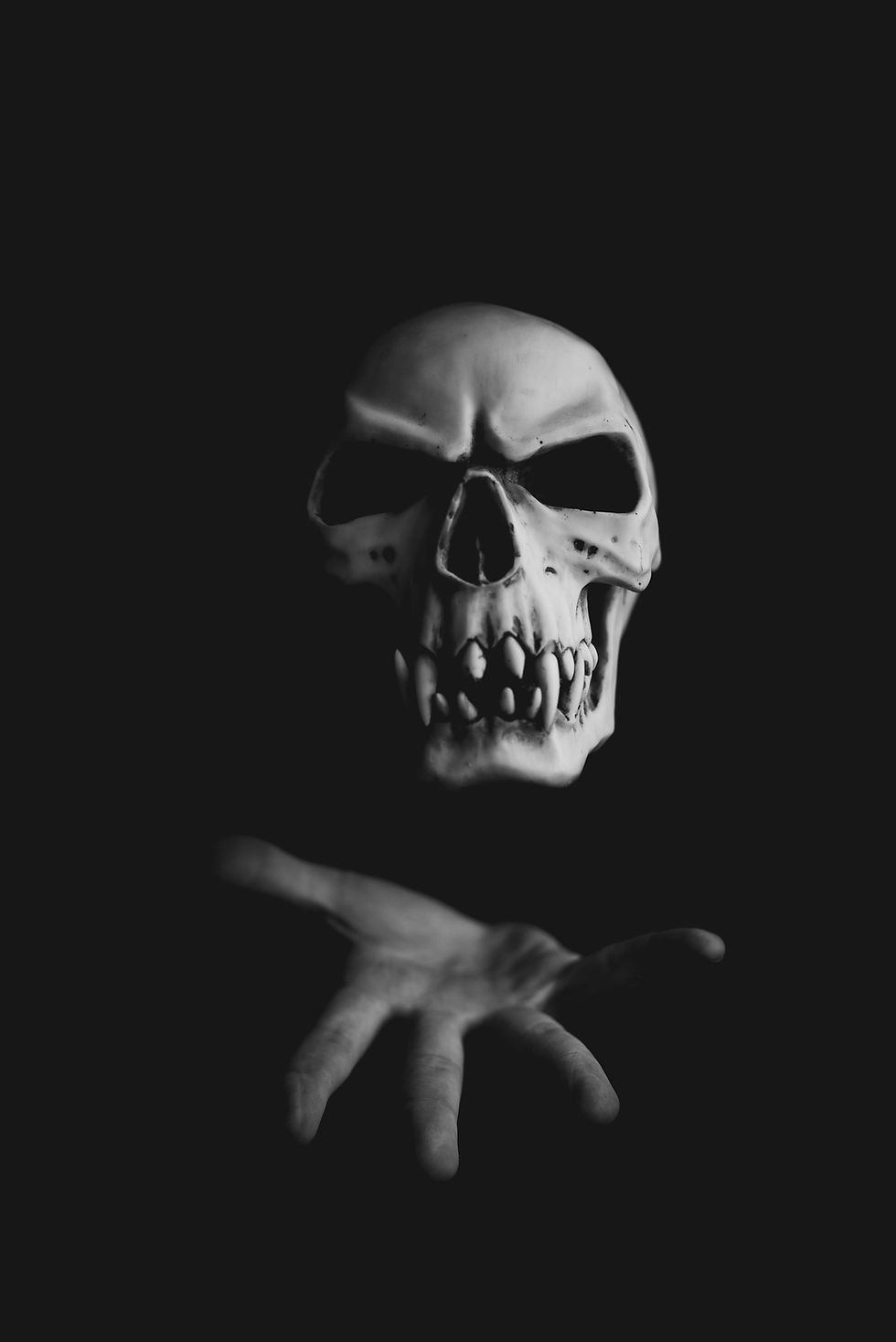The Thrill of Being Scared
- Joanne Lee
- Oct 29, 2020
- 4 min read
By: Shaina Grover
You walk into a haunted house and see your nightmares coming to life. Vampires, witches, monsters, and clowns are all chasing you through endless corridors. Adrenaline coursing through your body, your heart starts racing as you turn the corner, unsure of what you’re going to see next. Fear starts taking over, yet every year, you always go back. Why? Why do we like getting scared? What draws us to it?

Your response to a situation starts in your brain, and then your body reacts accordingly. The feeling of fear begins in the amygdala, which is located in the temporal lobe. The amygdala is a set of almond-shaped nuclei responsible for assessing and processing the fearful stimulus the body is exposed to. Although the amygdala responds to all emotionally stimulating situations, its reactions are strongest with anger and fear. The amygdala signals the hypothalamus, letting it know you are in a stressful/dangerous situation.
The hypothalamus uses the autonomic nervous system to send messages to the rest of your body, including the adrenal glands. These signals then activate the sympathetic nervous system, which triggers the fight-or-flight response in your body. The sympathetic nervous system knows what to do because the adrenal glands received messages to release epinephrine, or adrenaline, into the body

With adrenaline pumped into your system, you go through several physiological changes. If you’ve ever been in a haunted house or any situation that you felt scared, you must have noticed that your heart rate went up, blood pressure rose, pupils dilated, breathing became more rapid, and that your senses became sharper. Epinephrine also releases the glucose and fats that are temporarily stored in your body, resulting in an extra surge of energy.
But the real question is, how is our body able to enjoy these situations? There are various reasons, but each one has one similarity - every person’s body has a different chemical reaction in their brain. For some people, the body releases an excess amount of dopamine when facing a scary situation, which is a chemical that makes you feel good.
Moreover, everybody has an “emotional regulator,” which essentially makes sure your emotions are not too extreme and that your body’s reactions are still necessary. For example, there are multiple ways your body regulates fear, the main one being extinction. Extinction is when the fear you are experiencing begins to dissipate because your brain concludes that the situation is no longer threatening -- the danger is extinct. During this process, the original feeling of fear is not erased; instead, after learning the new information that there is no danger, it becomes clear to you that you are not in a life-threatening situation and the previous feelings of fear are overridden. However, this does not mean that your body doesn’t still feel fear. You still feel the initial shock, adrenaline, rapid heartbeat, quicker breaths, sharpening of senses, and a burst of strength—but after realizing that there is no real danger, you are able to enjoy the situation because the rush of adrenaline can be exciting. It is important to keep in mind that everyone’s emotional regulatory systems are different. For one individual, a scary movie can seem almost real and prevent him or her from enjoying it, while for others, it may even be boring because it does not trigger enough of an emotional response.
The feeling of control gives people a sense of power, but when facing a scary situation without being in control, it is impossible to enjoy it. Many people enjoy being scared while in a controlled environment, like watching a horror movie or going to a haunted house, because the real world is full of chaos and danger. People’s everyday lives can be filled with problems and confusion, which can occasionally be overwhelming, but these experiences can give them a sense of control. Watching or experiencing a dangerous situation as an outsider creates a sense of thrill rather than terror and can accomplish two things. Either it can reduce your fear of your real problems because, in comparison, your problems are not as scary, or it can act as a temporary escape from your life and distract you from your problems (escapism).
There are also social aspects to overcoming fear. When people enter haunted houses with their friends and see other people begin to laugh, their own fear slowly begins to diminish because your mind thinks, “If they aren’t scared, why should I be?”
Having fun while being scared in a non-life-threatening situation can create excitement because of the adrenaline coursing through your body. So, next time you go into a haunted house, see if you can identify the different physiological changes your body goes through, and whether or not you start to enjoy them.
Citations:
Image Credit:
Photo by Max Kleinen, https://unsplash.com/photos/0ovV4Hg2oCI
Photo by Camila Quintero Franco, https://unsplash.com/photos/mC852jACK1g
What Did You Learn?
Questions:
1. What is epinephrine and what does it do?
Epinephrine is also known as adrenaline. It is a hormone released by the adrenal glands that directly impacts your bodily functions such as breathing. When epinephrine is released into your body, your pupils dilate, you start to breathe more rapidly, your heart starts to beat faster, your more important muscles feel a burst of strength, your blood pressure rises, and because the glucose and fats that were being temporarily stored are released, you have more energy and feel excited.
2. Why do memories made during an emotionally stimulating situation feel stronger?
Memories made during a time when you were feeling a lot of emotions are referred to as “flashbulb memories.” Even though you might eventually forget important events from earlier in your life, flashbulb memories are more likely to be remembered. Oftentimes these memories are the source of certain fears. A traumatic memory that is associated with an object or thing can keep you from wanting to experience that again. For example, if you had a bad experience with haunted houses, you may never want to go back inside one. However, these memories are often subject to distortion, creating fear from an event that may not have been that significant.




Comments